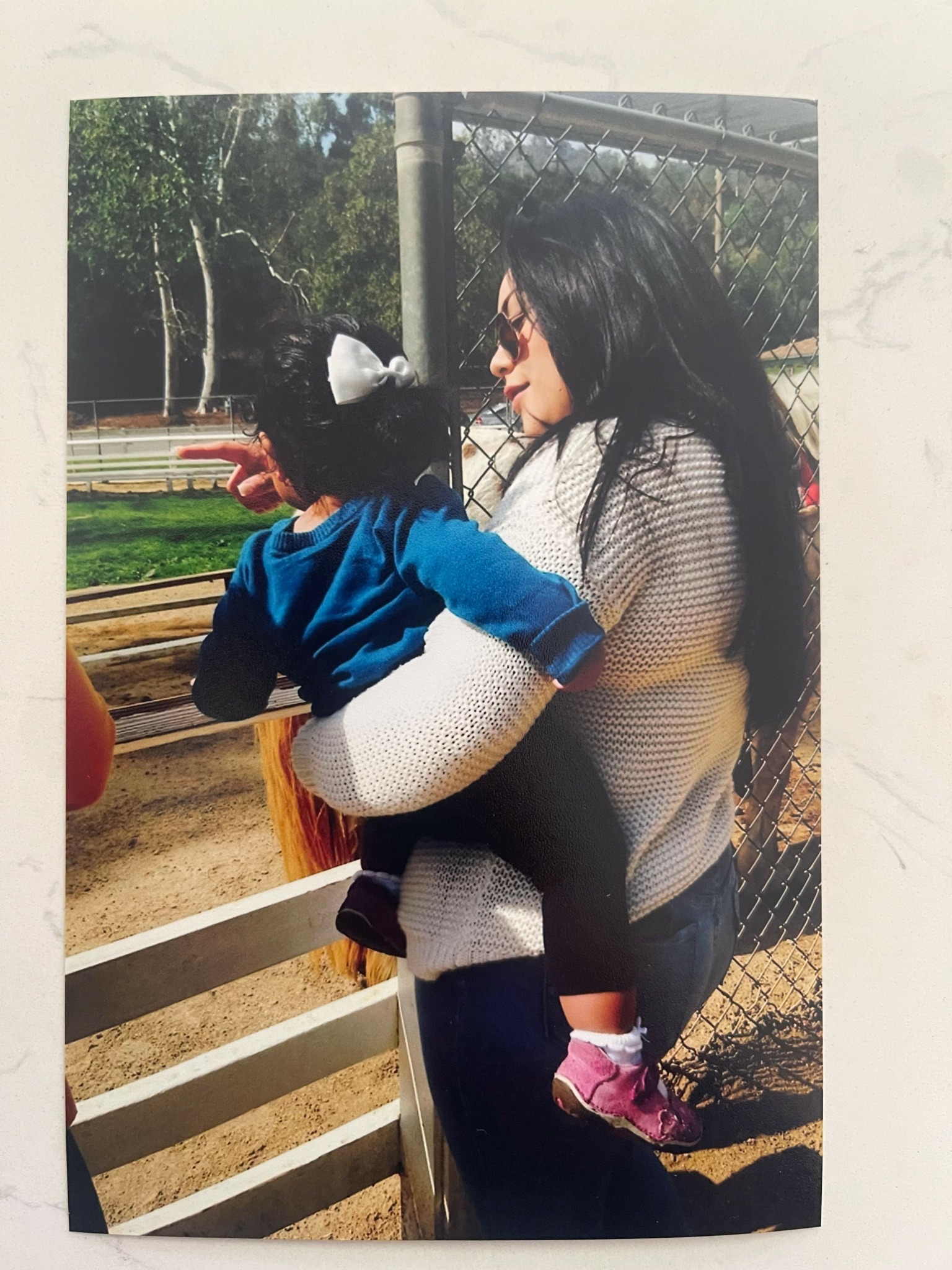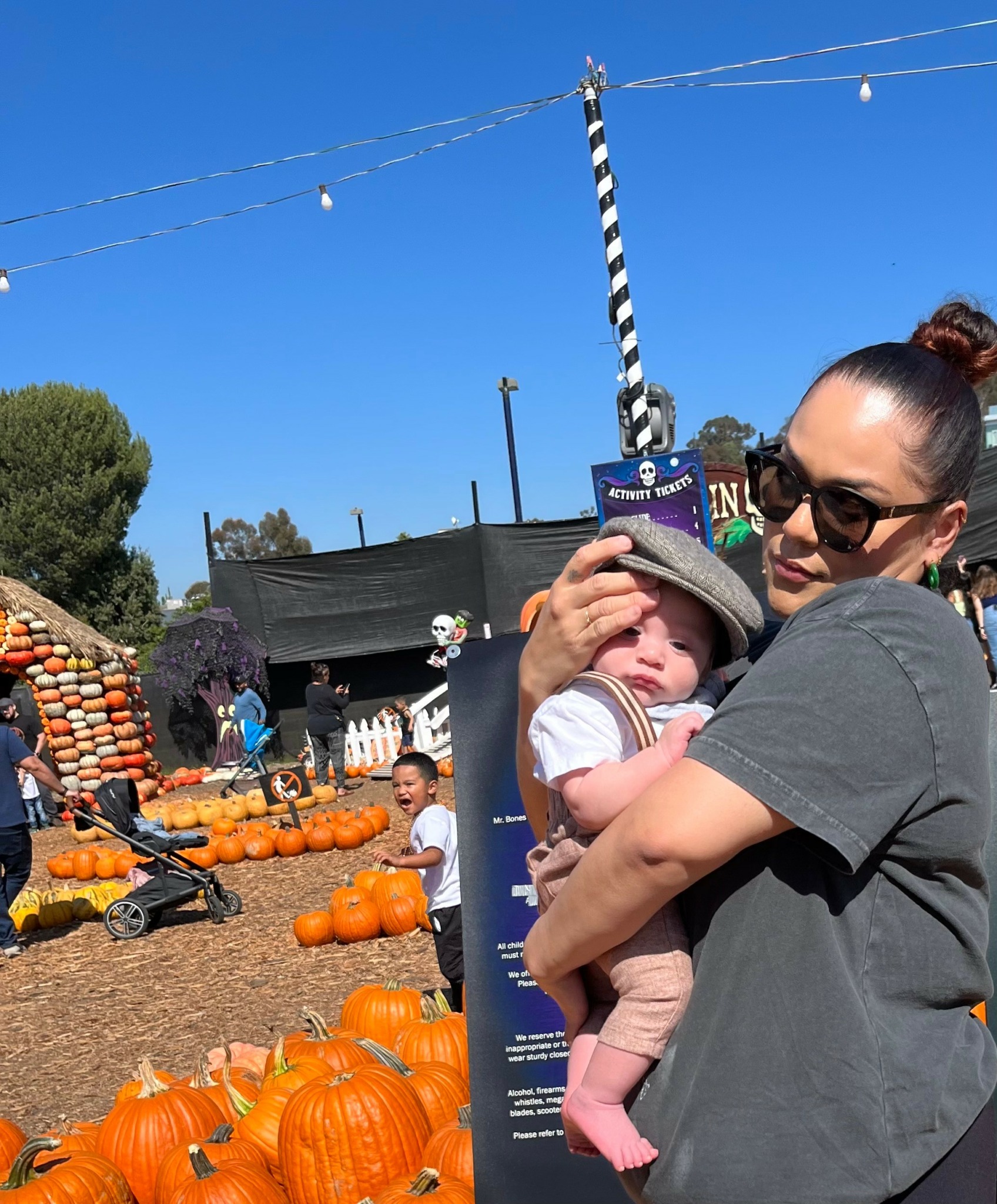We’re excited to introduce you to the always interesting and insightful Cristina Perez. We hope you’ll enjoy our conversation with Cristina below.
Hi Cristina, thanks for joining us today. How’s you first get into your field – what was your first job in this field?
When I think back to my first job in the field, it was at The Good Seed, and honestly, it changed the course of my life. I still remember walking through those doors for the first time nervous, hopeful, and not entirely sure what to expect. At the time, I just knew I wanted to be in a space where I could make a difference, where my work would matter. I didn’t yet realize how deeply it would shape not only the young people I worked with, but me as well.
The youth at The Good Seed were carrying so much mental health struggles, family trauma, systemic barriers and yet, what stood out the most was their resilience. I was tasked with supporting them, guiding them, and helping them navigate through crisis, but in reality, they gave me just as much as I gave them. Every conversation, every breakthrough, every setback taught me patience, empathy, and what it truly means to show up for someone.
The recruiting process itself wasn’t glamorous, it was straightforward and practical. But for me, it wasn’t about landing “a job,” it was about stepping into a calling. At that time in my life, my goals were simple but powerful: I wanted to be useful, to serve, to be the kind of adult presence I wished every young person could count on. I had no idea how much this role would open my eyes to the intersection of mental health, community, and healing.
Looking back now, I’m grateful that Good Seed was my first step. It was a baptism by fire in some ways, there were long days, tough cases, and moments where it felt overwhelming. But those youth pushed me to grow in ways I couldn’t have imagined. They taught me that impact isn’t always about big gestures; sometimes it’s about sitting quietly with someone in their pain, or celebrating the small victories that only they know took a mountain of strength to achieve.
Am I happy I ended up there for my first job? Absolutely. It gave me direction, it gave me a sense of purpose, and it laid the foundation for everything I do now. Without Good Seed, I don’t think I would have developed the same depth of compassion or the drive to continue this kind of work. It was more than just a job, it was the beginning of a lifelong commitment to creating safe, supportive spaces where people can grow, heal, and feel seen.

Great, appreciate you sharing that with us. Before we ask you to share more of your insights, can you take a moment to introduce yourself and how you got to where you are today to our readers.
My journey into this field wasn’t accidental, it came from lived experience, faith, and a deep commitment to serving those who are too often overlooked. I first entered the world of social services through my time working with Good Seed, where I supported youth experiencing homelessness and struggling with mental health. That experience was life-changing; it showed me not just the challenges our youth face, but also the incredible resilience, creativity, and strength they carry within them. From that point forward, I knew this was more than just work for me, it was a calling.
Today, I serve through Butterfly’s Haven, a transitional program rooted in love, empathy, and trauma-informed care. We provide safe housing, wraparound services, and healing-centered support for justice-involved single mothers, young adults, and families in crisis. Our “products” aren’t physical items; they’re opportunities, opportunities to stabilize, to heal, to grow, and to rewrite one’s life story. We walk alongside participants in rebuilding their lives with dignity, equipping them with tools and resources while reminding them they are worthy of love and success.
What sets our work apart is the culture we create. Butterfly’s Haven isn’t just a program, it’s a community. We don’t see participants as “cases” or “numbers.” They’re people, each with a story that matters. We embed trauma-informed practices into every part of our operations, from staff training to daily routines, because we believe healing happens in environments built on trust, safety, and compassion. Our motto, “once a Butterfly, always a Butterfly,” reflects that commitment: no one walks this journey alone, and once you’re part of our family, you always have a place with us.
The problems we solve are layered. On the surface, we provide housing, food, case management, and life skills. But at the deeper level, we address cycles of generational trauma, barriers to education and employment, and systemic inequities that make it difficult for people especially women and youth of color to thrive. We exist to close those gaps and to prove that transformation is possible when people are given the right support.
I’m most proud of the ripple effect our work has created. Watching a mother regain custody of her children, seeing a young adult graduate from school, or hearing a participant say they finally feel safe enough to sleep through the night, those moments are priceless. They remind me why we fight through the challenges, why we continue to grow, and why we hold the line when systems sometimes fail the very people we serve.
What I want potential clients, partners, and supporters to know is simple: Butterfly’s Haven is more than an organization. We’re a movement of healing, empowerment, and community. Supporting us means investing in real lives, real families, and real futures. And for participants, I want them to know that when they walk through our doors, they are stepping into a place where they will be believed in, uplifted, and never judged for their past.
At the end of the day, my story is tied to theirs. The youth at The Good Seed changed me, the families at Butterfly’s Haven inspire me, and every person we serve reminds me of the sacred responsibility I hold in this work. This isn’t just a profession, it’s a mission, and one I am honored to carry forward every single day.
If you could go back, would you choose the same profession, specialty, etc.?
If I could go back, I would still choose the same path.
Working with the homeless youth population was my first step into this field, and it shaped so much of who I am today. Those early years showed me how resilience can look in its rawest form, and how much of a difference one stable adult or one safe space can make for someone who has known nothing but instability. It was challenging, yes, but it also taught me that compassion paired with structure can change lives.
Transitioning into serving single mothers deepened that understanding. I saw firsthand the sacrifices, strength, and relentless fight of mothers doing everything they could to provide for their children while carrying the weight of housing insecurity and systemic barriers. Supporting them meant not only addressing immediate shelter needs but also building pathways toward independence, security, and dignity.
Now, with the population we serve through Butterfly’s Haven and our expanded programs, I feel the work has come full circle. We are able to hold space for youth, families, and justice-involved individuals all at once, offering housing, healing, and hope. It’s not just a profession; it’s a calling. Every day, I witness transformation: someone who was once overlooked begins to dream again, a parent reunites with their children, or a participant finally feels safe enough to focus on their future.
The work is not easy, but it is deeply rewarding. If given the chance to start over, I would still choose this profession without hesitation, because every step along the way has been about giving people back their sense of worth and possibility, and that, to me, is priceless.
Training and knowledge matter of course, but beyond that what do you think matters most in terms of succeeding in your field?
Other than training and knowledge, I think what has been most helpful in succeeding in this field is heart.
Working with homeless youth, single mothers, and now the broader population we serve requires more than just knowing policies, systems, or best practices. It requires the ability to truly see people where they are, without judgment, and to offer them dignity and respect no matter their situation. Having love, empathy, and patience in moments when people are struggling or even lashing out makes all the difference, it builds trust, and trust is the foundation of any real progress.
Another key element is resilience. This work is not easy; it can be emotionally heavy and unpredictable. But being able to stay grounded, see the bigger picture, and keep moving forward even when there are setbacks ensures that we don’t lose sight of why we do what we do.
And finally, adaptability. Every person who walks through our doors has a unique story, and no two situations are exactly alike. Being flexible, knowing when to apply structure and when to soften it, when to listen and when to lead, is what allows us to meet people’s needs in a meaningful way.
So while training and knowledge give me the tools, it’s compassion, resilience, and adaptability that have truly allowed me to succeed in this work.
Contact Info:


